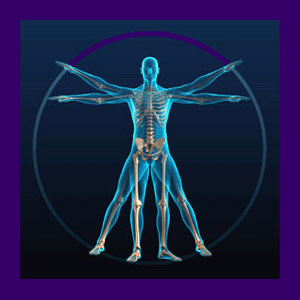
Chronic fatigue syndrome is a debilitating condition that is often caused by a psychosomatic process, even though the disorder seems so incredibly physical. Of course, chronic tiredness is not always caused by mindbody interactions and purely physical contributors may be at fault. However, it is also crucial to remember that not all cases of chronic tiredness should be defined as CFS.
While there are many conditions which resemble CFS caused by physical, environmental or infectious processes, true chronic fatigue is idiopathic in nature. The diagnosis is made by exclusion, which is another way for a doctor of saying: “We don’t know exactly what it is… But, we know what it is not.”
Let’s take a closer look at the diagnosis of CFS and how this pronouncement has a negative impact on virtually all affected patients.
What is Chronic Fatigue Syndrome?
CFS is a condition characterized by extreme mental and physical exhaustion. No amount of sleep or rest seems to fulfill the person’s needs. Patients can experience greater physical tiredness or mental exhaustion, or an equal combination of the two. Many patients have a difficult time functioning physically, while others are more hindered cognitively.
CFS is a truly debilitating condition which can quickly gain control of a patient’s life. It is also commonly experienced with other possible mindbody conditions, such as depression or malaise. Patients often tell that people around them just do not understand their suffering and some even doubt that anything is wrong at all.
Causes of Chronic Fatigue
Many fatigue conditions are caused by a specific physical cause. Some diseases, or their treatments, can cause extreme tiredness as a side effect.
Environmental issues and toxic substance exposure can also create extreme fatigue. Side effects of certain herbal or pharmaceutical products can produce utter exhaustion. Certain infectious conditions can also create symptoms similar to CFS. However, all these possible causes can be verified through the medical diagnostic process.
True CFS is defined as a condition of unknown origin. Patients often check out fine during a physical examination, yet are completely unable to function or lead a normal life. The frustration of not knowing exactly what is wrong with them, or how to fix it, is typically as bad for diagnosed patients as the exhaustion itself.
Psychosomatic CFS
One of the most accepted causations of CFS is a subconscious psychoemotional process. This is the same exact reason for other psychologically induced pain syndromes to express themselves. The mind can choose to use any number of possible painful or symptomatic conditions to create a distraction from repressed and unresolved emotional issues.
In the case of CFS, the mind chooses the highly effective camouflage of extreme exhaustion. As with most psychosomatic conditions, patients often resist accepting this diagnosis, leading to the creation of specific medical treatment programs which usually demonstrate dismal curative results. Of course the results are poor, since psychosomatic pain can not be cured with any physical treatment.
Additionally, most of the drugs used to treat chronic fatigue have terrible side effects. I have personally been contacted by many patients who chose the path of tiredness rather than continue using the pharmaceutical solutions given to them by their doctors. They cited that the side effects were just not worth the benefits.
Chronic Fatigue Syndrome Verdicts
Overcoming the psychological symptom stigma may be the key to understanding and eventually curing this disorder. Mindbody medicine is an exciting field, yet is still not fully accepted by traditional medical science, nor the general public.
If you have been diagnosed with CFS, you owe it to yourself to get all the facts. Be extremely careful about falling into some therapy program that uses powerful prescription drugs. This will usually only perpetuate the symptoms and possibly do irreparable damage to the body in the process.
Instead, many patients have found symptomatic resolution using the simple and effective methods of knowledge therapy as an alternative approach to care.
Back Pain > Psychologically Induced Pain Syndromes > Chronic Fatigue Syndrome





